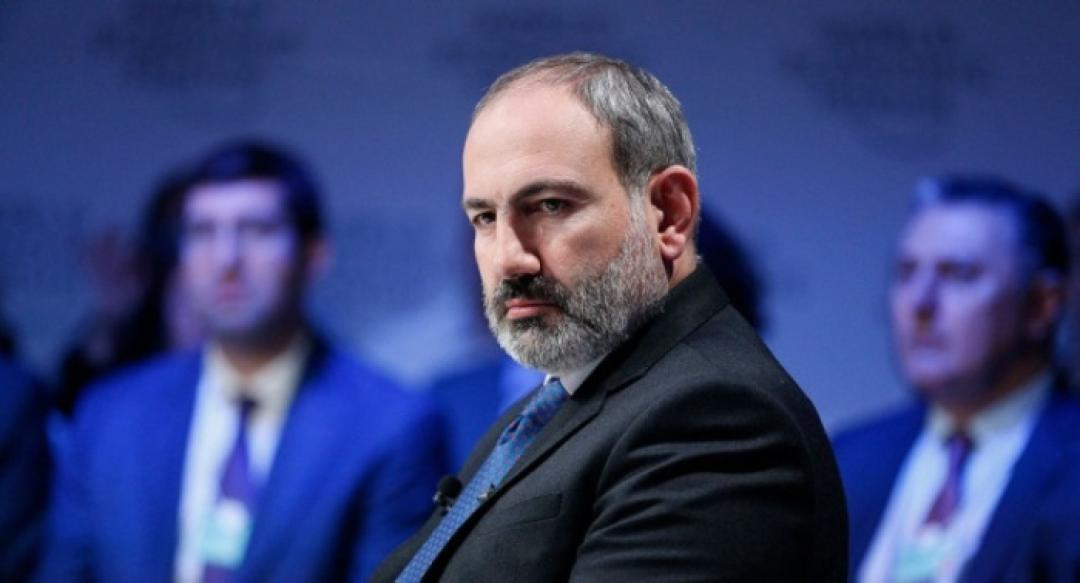
Pashinyan Outlines Vision for Armenia's Foreign Policy in AFP Interview

Armenian PM Nikol Pashinyan gave an interview to Agence France-Presse (AFP), discussing a range of critically significant topics, the PM’s press office reports.
Regarding lasting peace with Azerbaijan, Prime Minister Pashinyan expressed his belief in negotiations but acknowledged that the outcome depends not only on him but also on the positions of President Aliyev and the international context.
Pashinyan highlighted the humanitarian crisis in Nagorno Karabakh caused by Azerbaijan’s aggressive rhetoric, hate speech, and policy of revenge. The shortages of essential goods have affected the region, leading to growing pessimism. Despite the challenges, he affirmed Armenia’s commitment to seeking a resolution through negotiations, as there is no alternative.
He emphasized that Armenia’s red lines in the negotiations are its territorial integrity, sovereignty, and the rights and security of the Armenians in Nagorno Karabakh. He advocated for a Baku-Stepanakert dialogue within an international mechanism to ensure the involvement of Nagorno Karabakh’s people in addressing their rights and security.
“We call that Baku-Stepanakert dialogue, but given the disproportion of strength between Nagorno Karabakh and Azerbaijan, we think that if we leave Stepanakert and Baku face to face, Baku will have the opportunity of either turning that agenda into oblivion or have a monologue and not a dialogue. And that's why our perception is that dialogue should take place in the context of an international mechanism, where the international community will be the witness. Armenia's role here is difficult because Armenia's interest in this process is perceived and interpreted by Azerbaijan as a so-called encroachment or aspiration upon Azerbaijan's territorial integrity. Because of that perception, talks in this format have not turned out to be constructive, and this has been demonstrated by the whole history of negotiations,” he added.
On Armenia’s foreign policy, Prime Minister Pashinyan stated that Armenia is not “between Russia and the West” but among regional neighbors like Georgia, Turkey, Iran, and Azerbaijan. He called for a paradigm shift in regionalization and cooperation with neighboring countries.
Regarding Armenia’s relationship with Russia and the West, he emphasized the need to manage relations with neighboring countries directly without always relying on the geopolitical centers. He acknowledged the challenges of changing this historical tradition. However, he stressed the importance of being prepared for regional geopolitical changes.
On the Collective Security Treaty Organization (CSTO), Pashinyan mentioned discussing the organization's effectiveness with partners and stressed the need for transparent dialogue. “The question is not whether Armenia is leaving or will leave the CSTO. The question is whether the CSTO is leaving or exiting Armenia. I will say directly that many independent experts in Armenia regularly send me reports stating that these processes demonstrate that the CSTO is exiting Armenia. Moreover, there are many experts whose assessment is that Russia is exiting the region. This may seem like science fiction, but unfortunately, our people have seen this in history. After all, a consequence of what was the 1915 genocide of the Armenians, when Russia essentially had to exit the conflicting region under its domestic burden? And the Armenians, who had made a clear geopolitical choice, were left to face Turkey. 1915, 1917, 1918 – years of instability in Russia, Russia had to withdraw from the region, and the genocide carried against the Armenian people. But now the problem is that in 1915, the Armenian people did not have a state, a statehood that would have the obligation of safeguarding its own people. Now the Armenians have a state, and the policy of the state must be built in accordance with this logic because the likelihood that one day we will see Iran or Turkey leaving this region is zero, there is no such likelihood, but the likelihood that any geopolitical center which is currently present here, we may wake up one morning and find they have left, that likelihood is greater than zero, not necessarily intending to harm, not necessarily with the reluctance to carry out their obligations towards anyone, including Armenia,” he stressed.
Armenian PM also expressed concerns about the impact of sanctions on Armenia due to its close ties with Russia but affirmed Armenia’s commitment to act responsibly and in line with international expectations.
See Also


Armenia Records 5.9% GDP Growth in 2024, Missing 7% Goal

Yerevan Balances Strategic Ties with Both US and Russia, Says Foreign Minister

FM Mirzoyan: Peace Deal with Azerbaijan Is Within Reach

Pashinyan and Erdogan Hold Call, Reaffirm Commitment to Ongoing Dialogue

